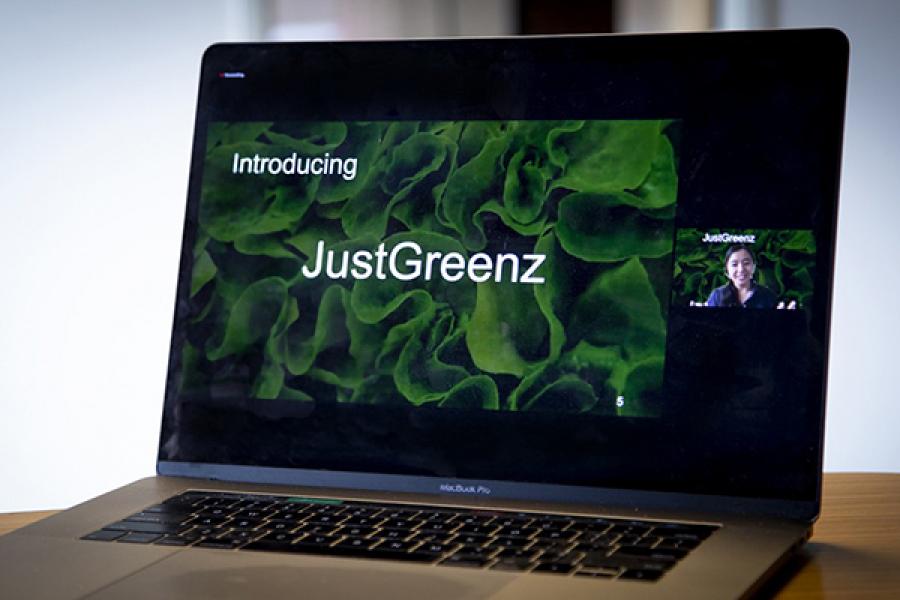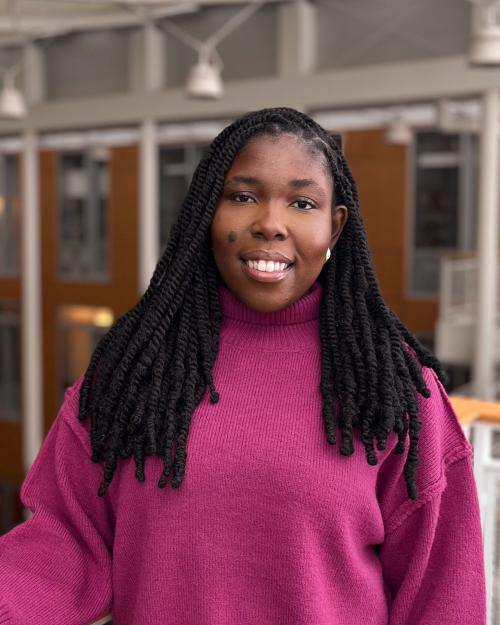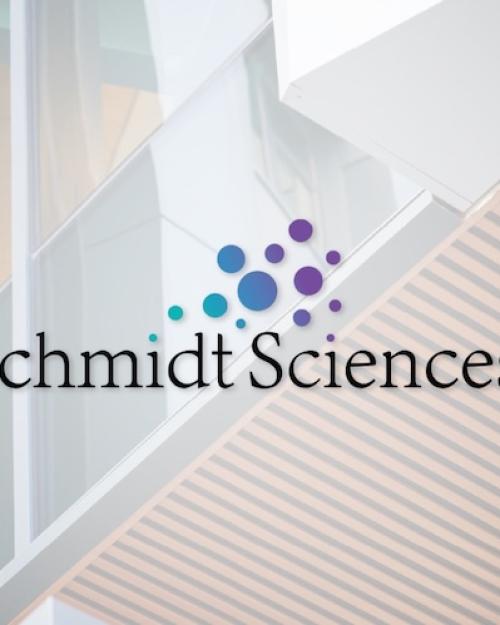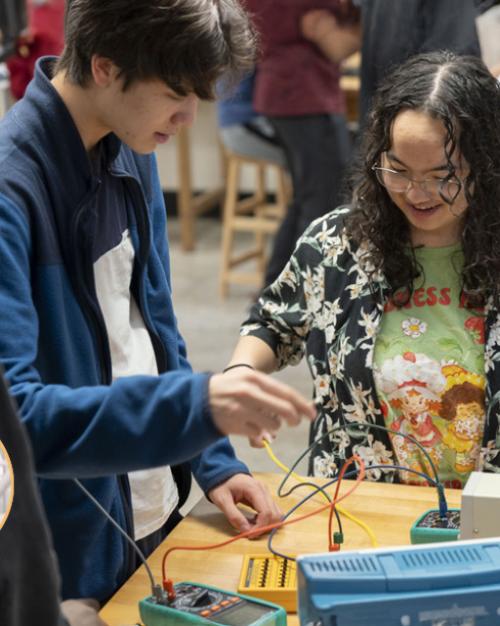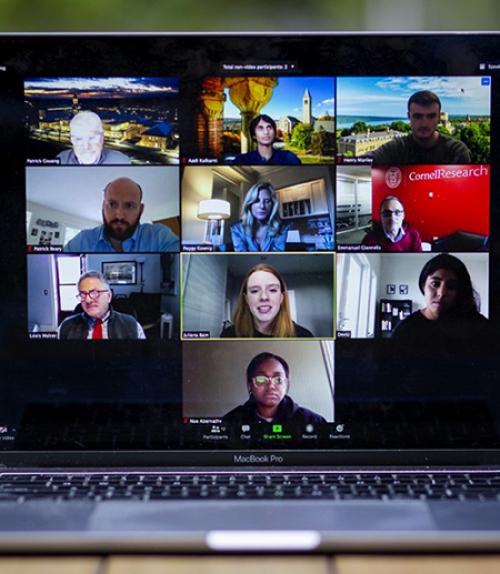In the 2016 presidential election, stronger turnout among college students could have flipped the outcomes in several states that were decided by razor-thin margins.
“It really puts into perspective how powerful students can be when they are activated and know what they’re supposed to be doing,” said Noe Abernathy ’20, chief operating officer of Voteology. “We want to make it as easy as possible for students to be informed about where their voices matter most and how to do that.”
Voteology, a nonprofit website started this year by a team including Abernathy, founder Juliana Bain ’20 and Devki Trivedi ’20, aims to help eligible students register as voters, learn about issues and compare where their vote would have the most impact – in their home or college district.
The initiative won the $2,000 top prize in Cornell’s first Pitch for the People, a virtual competition held Sept. 30 that encouraged students, staff and faculty in the humanities or social sciences to pitch projects designed to tackle a social problem and “better humanity.”
“The quality, energy, thoughtfulness and professionalism of all of the student presenters made our choice quite challenging,” said Peggy Koenig ’78, chair of the Cornell University Board of Trustees’ Committee on Research and Innovation and one of the competition’s five judges. “In the final analysis the important, pressing social problem addressed by Voteology, along with their existing accomplishments and future plans, differentiated the opportunity and the team.”
The inaugural competition was proposed by Emmanuel Giannelis, vice provost for research and vice president for technology transfer, intellectual property and research policy. He came across something similar during a visit to the University of Oxford in England and thought the concept would fit well at Cornell.
1006_pitch1_600x400px.jpg
“Most of what we did at Cornell in the space of innovation and entrepreneurship was focused towards science and engineering, and I thought, what a great idea to engage the rest of the community,” Giannelis said. “That’s the type of initiative that we ought to be doing more of, to support experiential learning opportunities.”
Fifteen competitors submitted proposals last summer explaining the problem they were trying to help solve, their solution, potential competitors and how they would use any funding they won.
Six finalists delivered five-minute pitches and answered questions from the panel of judges including Koenig; Giannelis; Patrick Beary, senior director of strategic partnerships at the Cornell Atkinson Center for Sustainability; Patrick Govang, director of innovation partnerships at the Center for Technology Licensing; and Louis Walcer ’74, director of the McGovern Center life sciences business incubator.
The judges awarded a $1,000 second prize to JustGreenz, a potential Ithaca-based startup proposing to locally source and market an additive-free vegetable powder mix to support healthier diets and students with dietary restrictions. Annie Sheng, a doctoral student in the field of anthropology, and Marcin Sawczuk, a doctoral student in civil and environmental engineering, pitched the venture.
A $500 third prize went to Hudson Origins, an online network seeking to help Spanish-speaking parents navigate pediatric mental health information and services in Hudson County, New Jersey. The project was pitched by Eric Kohut ’22 and Erika Gonzalez ’22.
The three other finalists won $250:
- HEAL, a free psychological counseling service for Chinese international students studying in the U.S., led by Shiyu Hu ’22, Xinran Wei ’22, Ruoxi Li ’22 and Lin Lin ’22;
- Global Girlhood, which seeks to foster a global community of women that uses storytelling to revolutionize representation in media, education and leadership, led by Pranjal Jain ’23 and Aashna Kaur ’21; and
- Humans to Humans, a service connecting university students to entrepreneurs developing sustainable, socially conscious ventures in emerging markets, led by Clemence Bruguier ’21; Osei Boateng ’18, MHA ’20; and Ivana Letayf Lazo de la Vega ’23.
With its winnings, Voteology’s all-volunteer team hopes to improve the site’s email service and develop a messaging application. With roughly 9,000 users currently, the site hopes to expand its presence to 50 college and university campuses, up from about 20, Abernathy said.
Longer-term, Voteology is seeking philanthropic or foundation funding to support full-time staff and the collection of data on local elections in every municipality, from school boards to district attorneys. The site also seeks to connect students to like-minded peers to raise political awareness among young voters and build support for issues they tend to care about, like climate change.
“Because we are historically unreliable voters, that means that a lot of politicians don’t listen to what we have to say,” Abernathy said. “We want to make it so that they cannot ignore us anymore, and we will be part of the path to victory for every single campaign.”
Read the story in the Cornell Chronicle.
